AM 130: Cubism
1/40
There's no tags or description
Looks like no tags are added yet.
Name | Mastery | Learn | Test | Matching | Spaced |
|---|
No study sessions yet.
41 Terms
What is Cubism and Dada?
To show the ‘concept’ of an object rather than creating a detail of the real thing.
To show different views of an object at once, emphasizing time, space & the Machine age.
To simplify objects to their most basic, primitive terms.
Pablo Picasso
1888-1973
Considered most influential artist of 20th Century.
Paul Cezanne
Post-Impressionist artist.
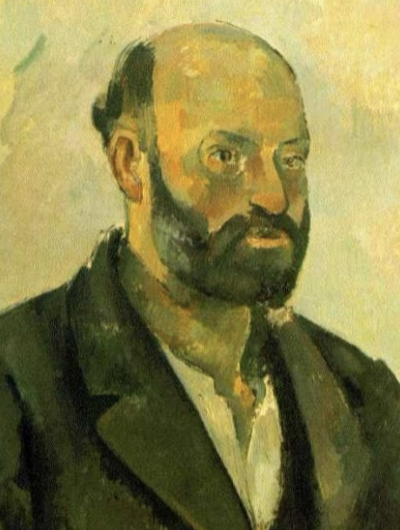
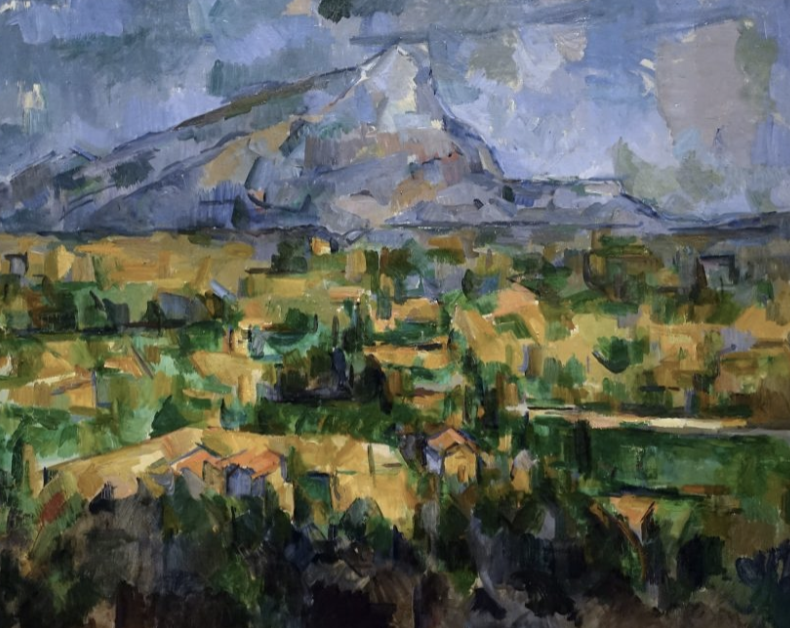
Paul Cézanne, Mont Sainte-Victoire, 1902–04, oil on canvas
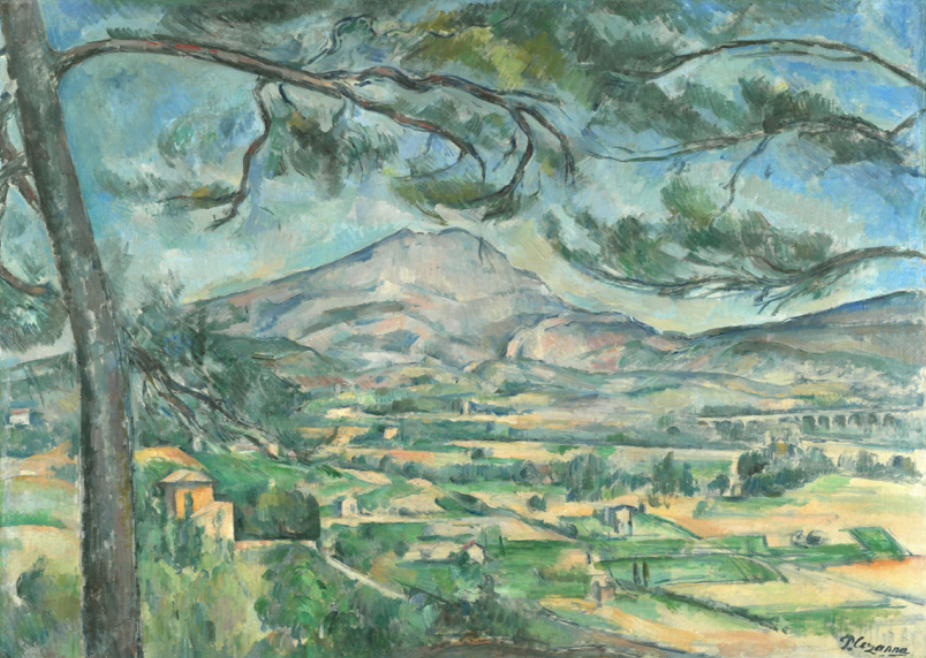
Paul Cezanne, Montagne Sainte-Victoire with tall pine tree, 1885
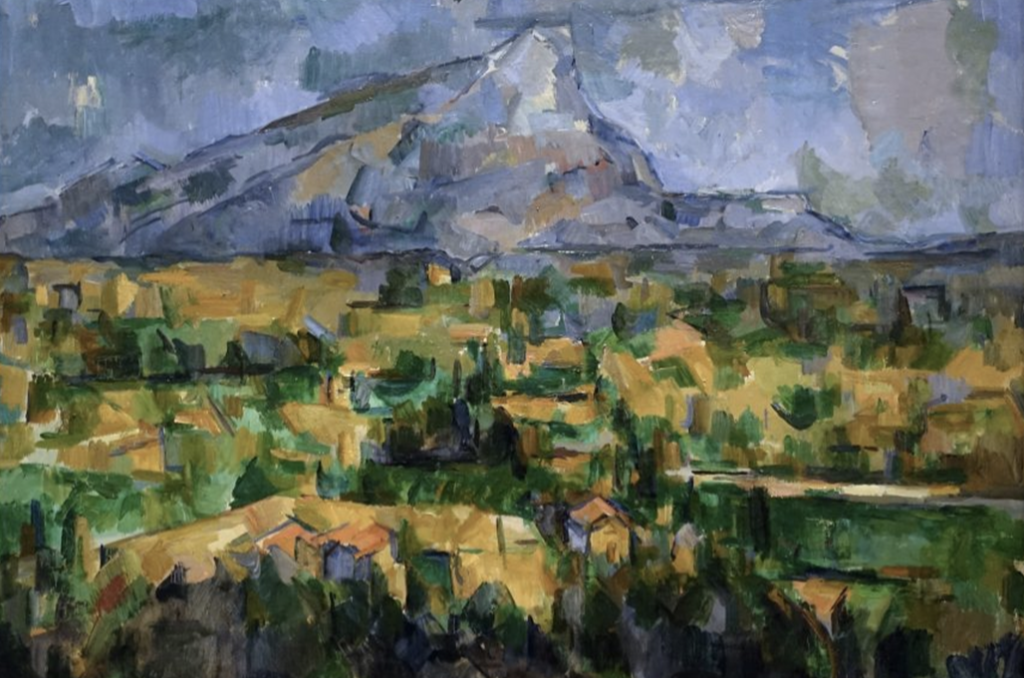
Paul Cézanne, Mont Sainte-Victoire, 1902–04, oil on
canvas
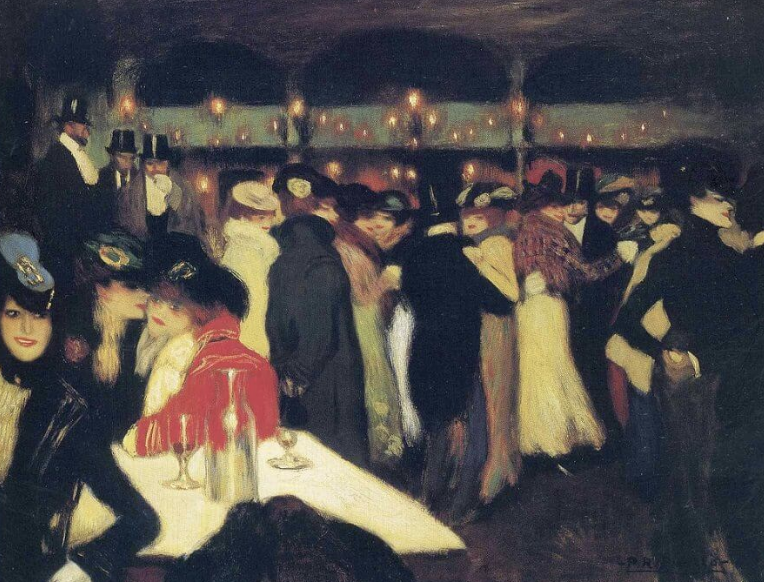
Le Moulin de la Galette, 1900 by Pablo Picasso.
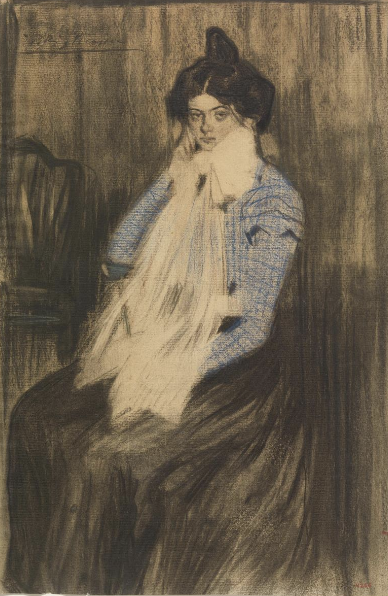
Lola, the artist’s sister, 1901, by Pablo Picasso.
Picasso’s Blue Period
1901-1904
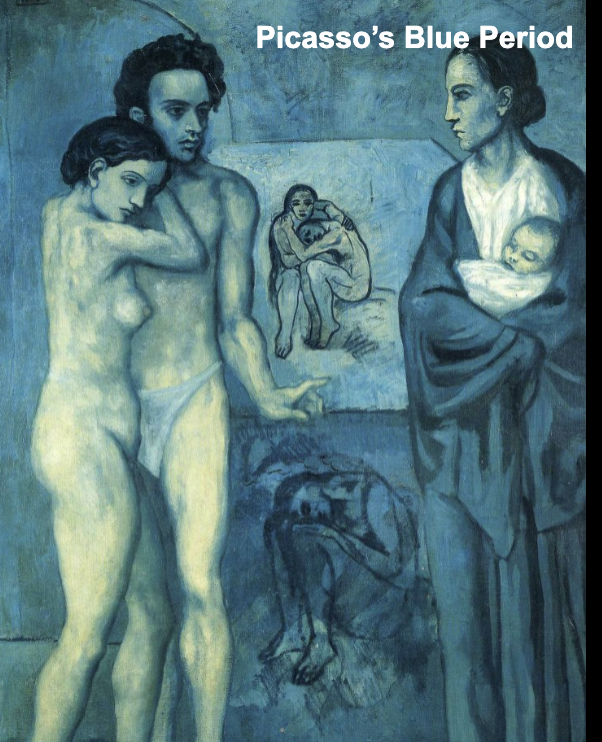
La Vie. La Vie (1903)
Blue Period
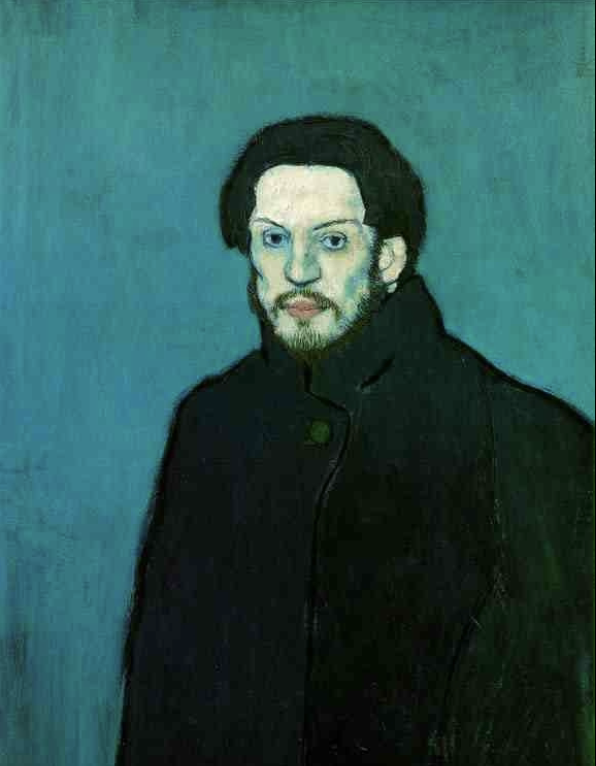
Pablo Picasso, Self Portrait, 1901.
Blue Period
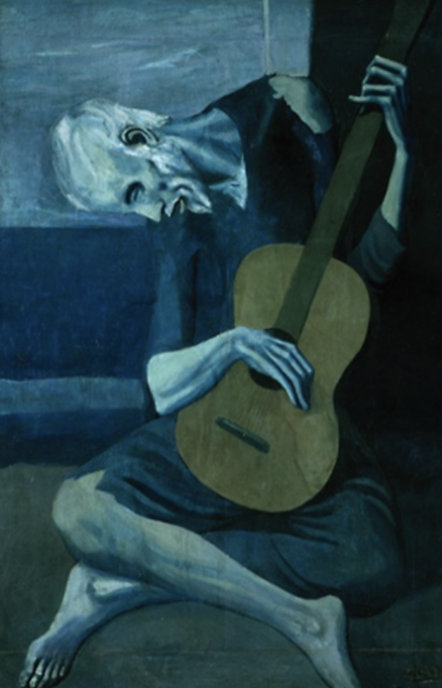
The Old Guitarist, 1903 by Pablo Picasso
Blue period
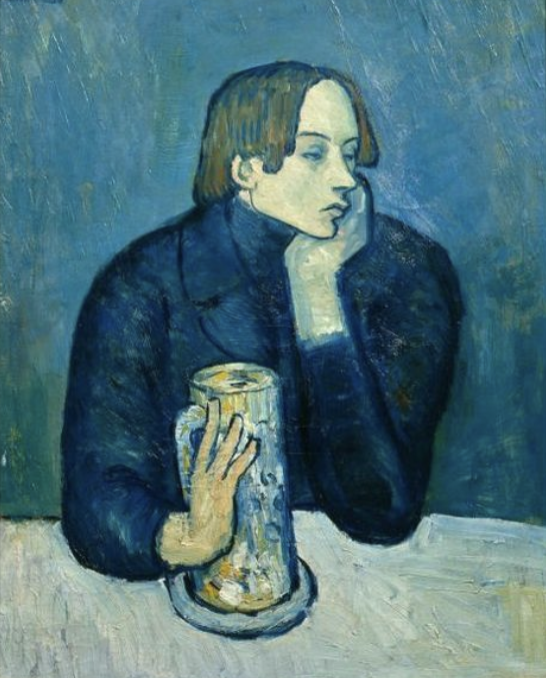
Portrait of Jamie Sabart, 1901
Blue Period
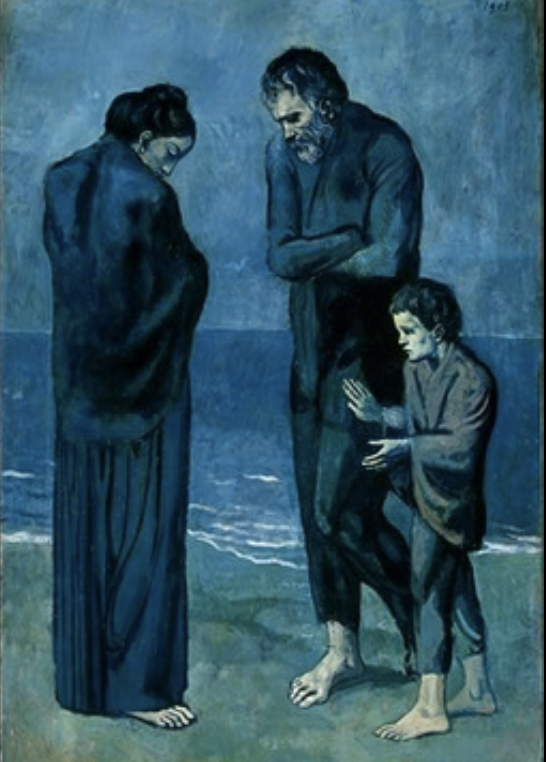
Pablo Picasso, Tragedy, 1903.
Blue Period
Picasso’s Rose Period
1904-1906
Much happier art than before, circus people as subject, reds and warmer colors.
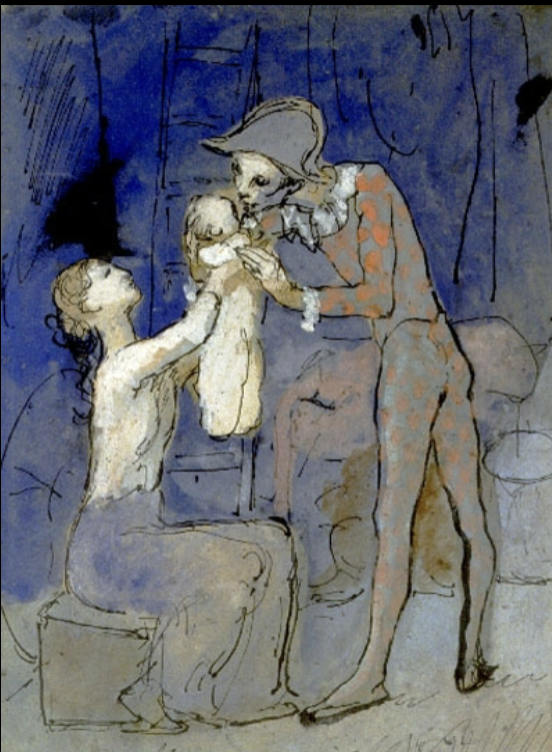
Pablo Picasso, Harlequin Family, 1905.
Rose Period
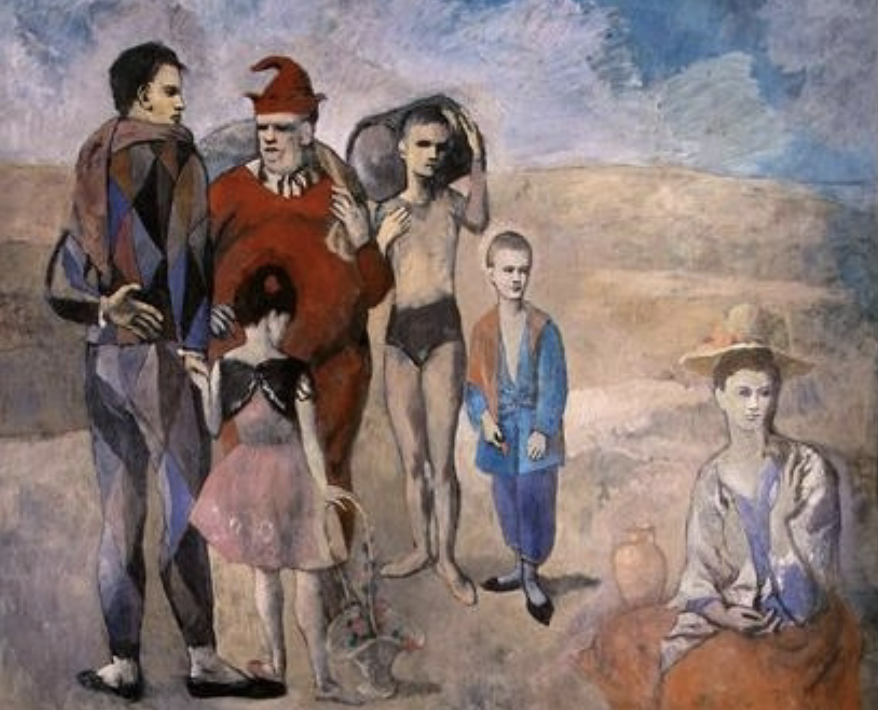
Pablo Picasso, La Familia de Saltimbanques, 1905. Rose period
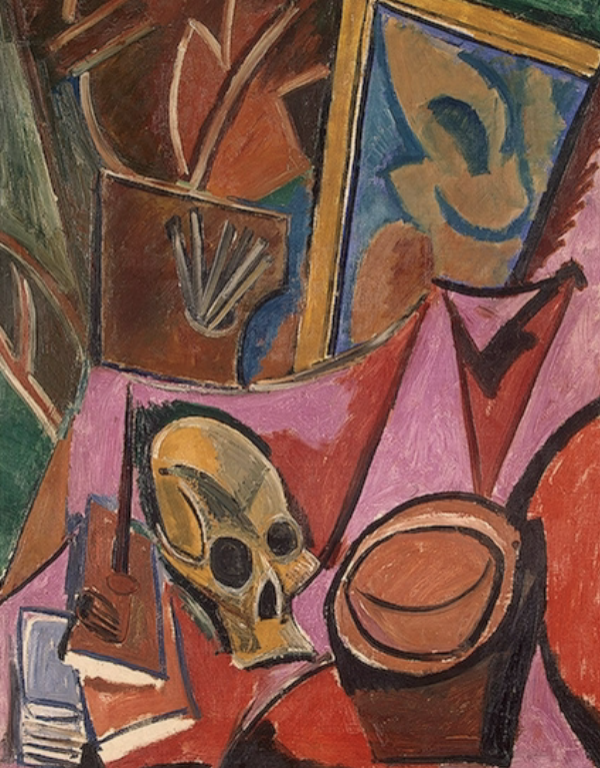
Pablo Picasso, Composition with Skull, 1908
Beggining of the cubist era, much more abstract than before
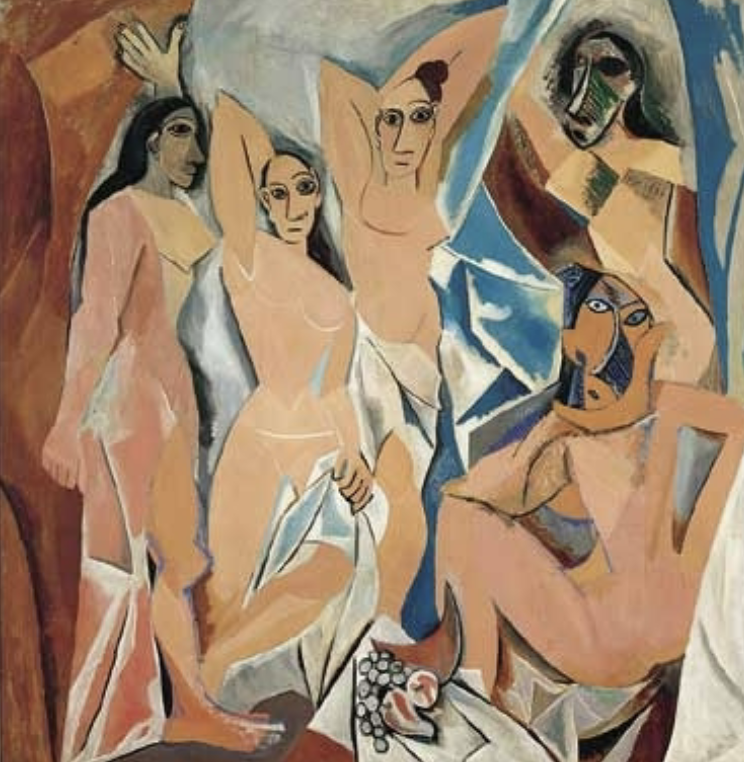
Pablo Picasso, Les Demoiselles D’Avignon, 1907.
Major influences of cubism era
African Zimba Mask, and Les Demoiselles D’Avignon, 1907.
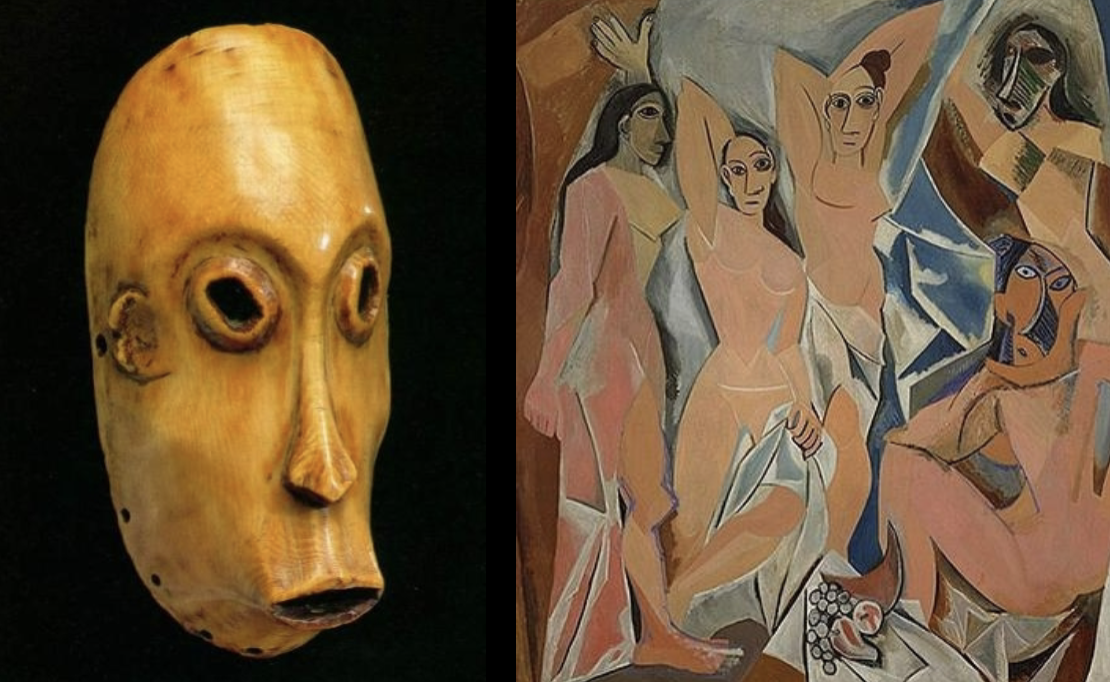
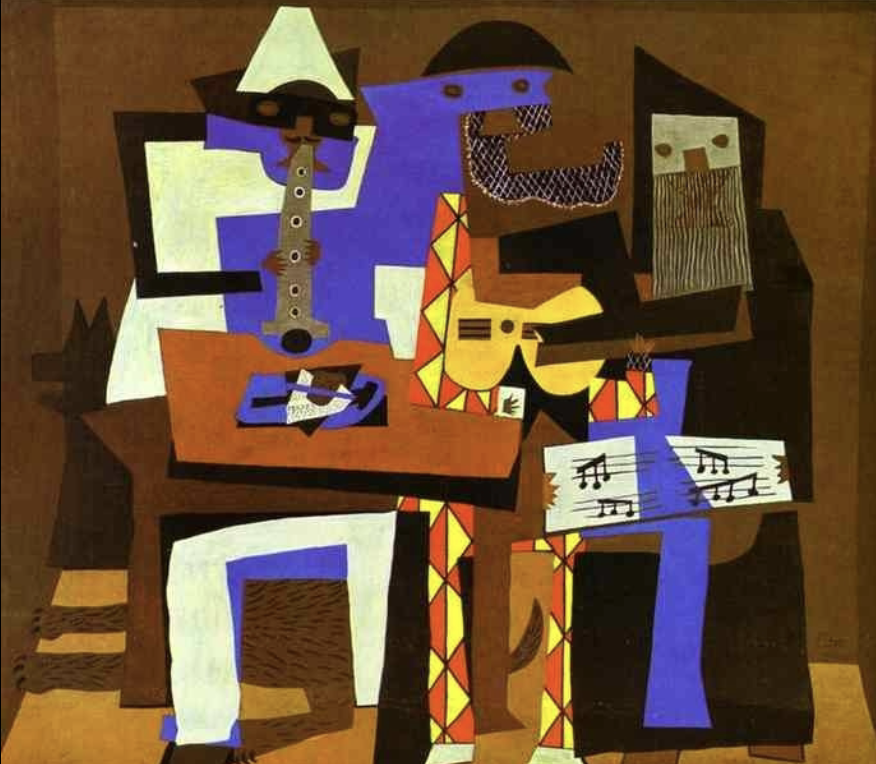
Pablo Picasso, Three Musicians, 1921.
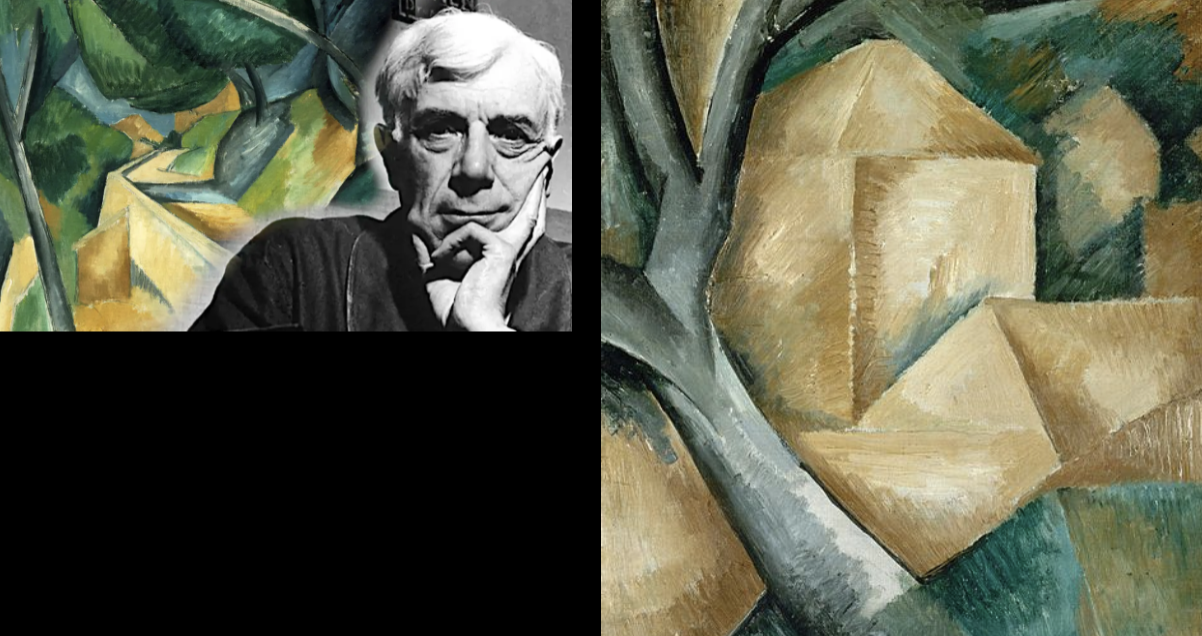
George Braque, Houses of l'Estaque, 1908.
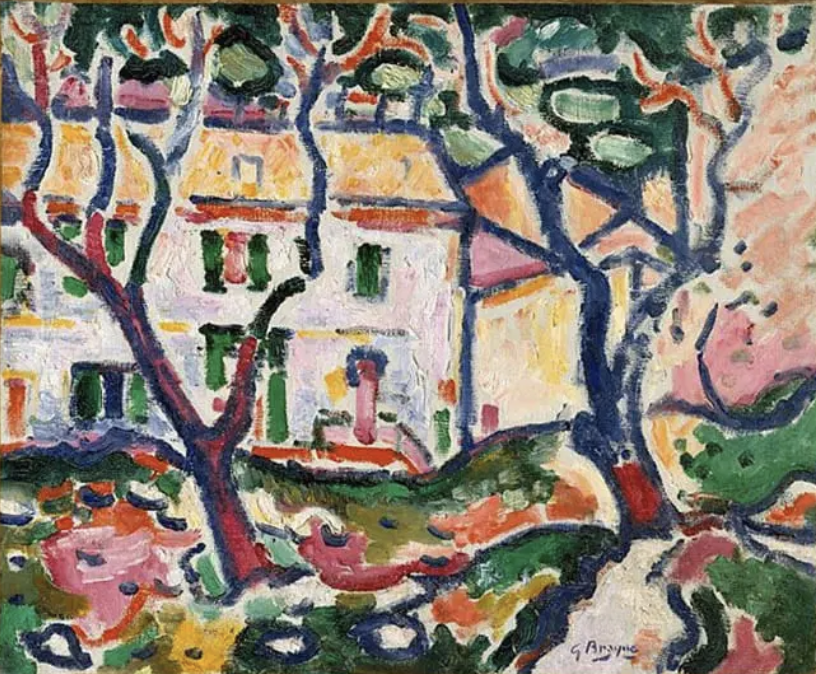
House Behind Trees by Georges Braque, 1906-07, During his
“Fauve phase”.
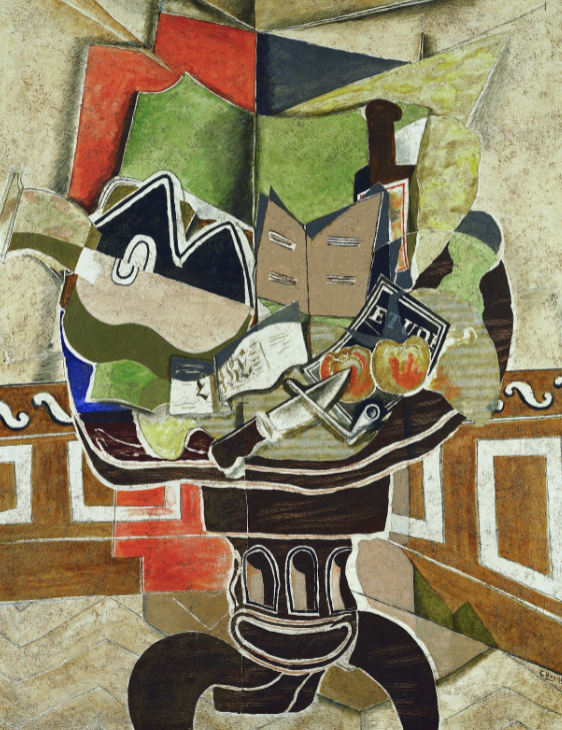
Georges Braque - The Round Table
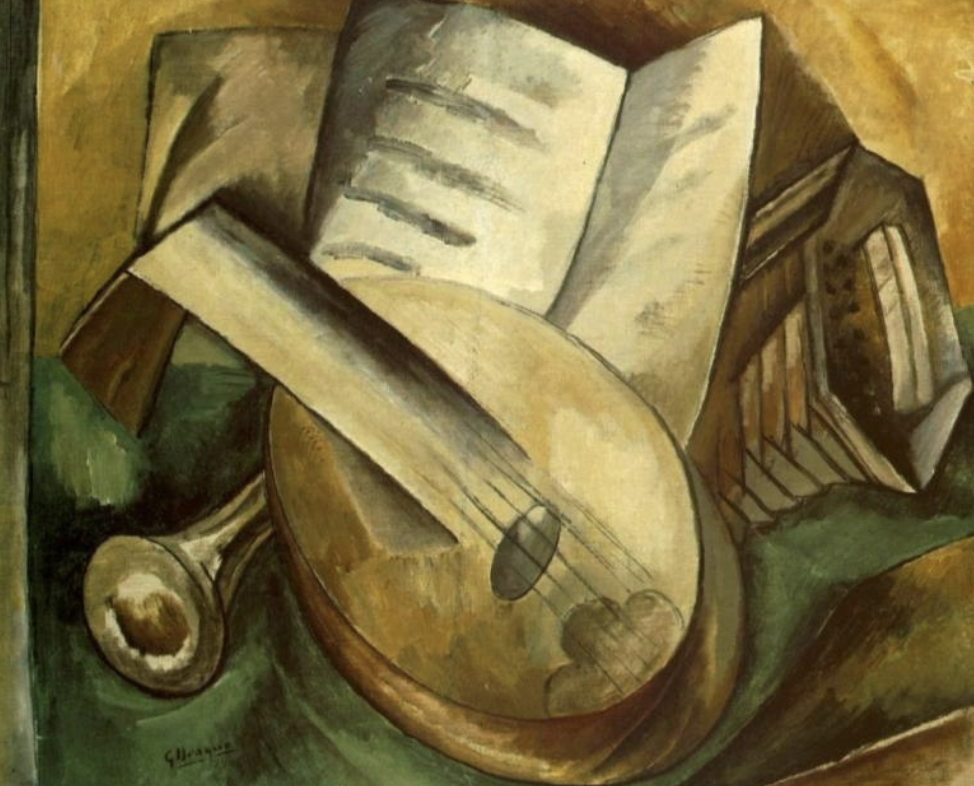
Georges Braque, Musical Instruments, 1908.
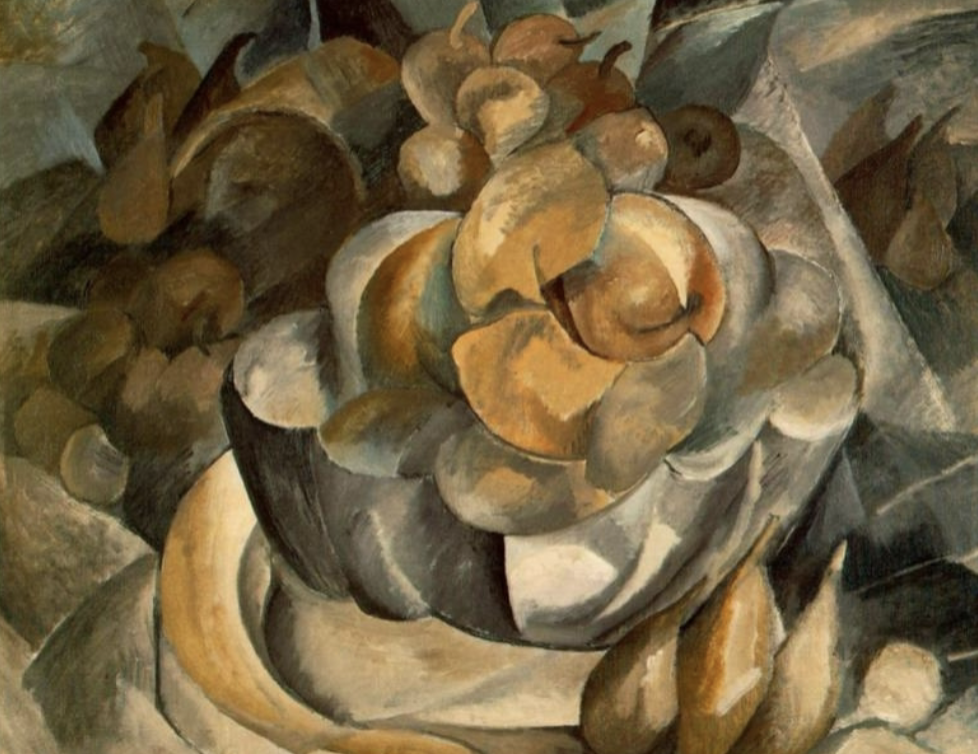
Georges Braque, Fruitdish, 1908-09.
Analytical Cubism
Little contrast in color
Complex and systematic design
Faceted shapes, translucent divisions of space
Differing views of the same subject in the same work
Invented by Picasso and George Braque- at the same time, but not really in collaboration
Retains some sort of depth
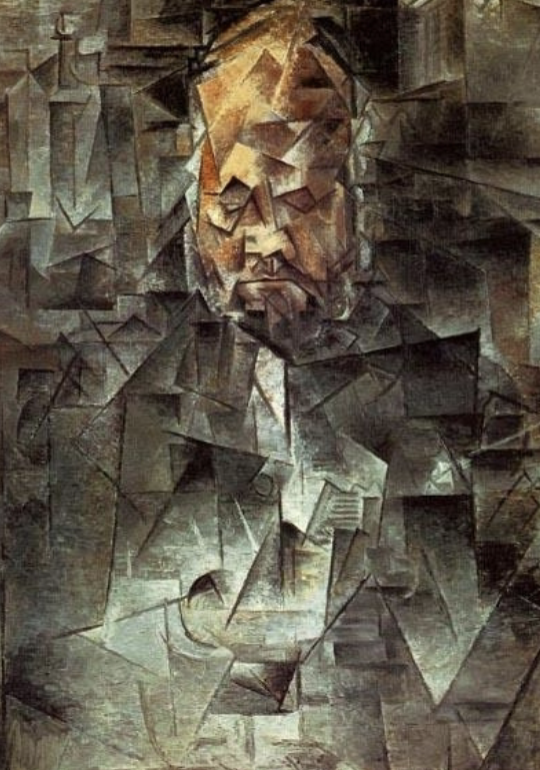
Pablo Picasso, Portrait of Vollard, 1910, Analystical cubism
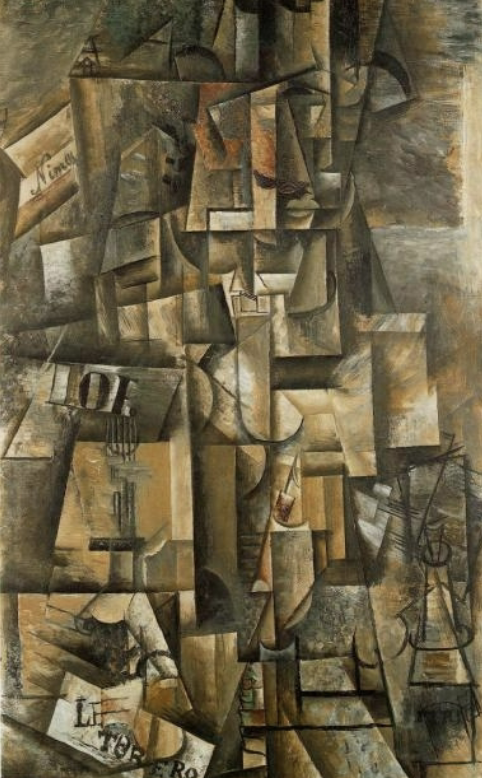
Pablo Picasso, Aficionado, 1912.
Analytical Cubism
Synthetic Cubism
Invented by Braque and Picasso
Puts forms back together after breaking them apart
“Collage” comes from French word for “glue”
Foreign materials are pasted onto the design- makes the collage look like a real surface
Scraps are changed and painted on, giving them a double meaning
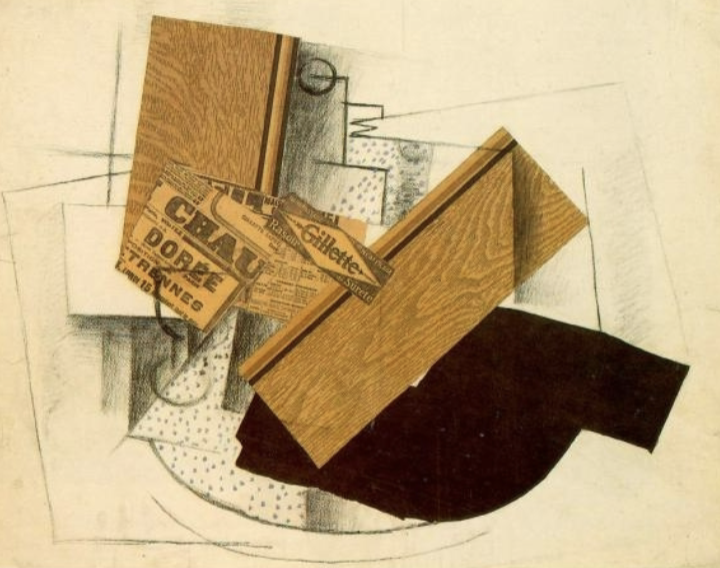
George Braque, Gillet, 1914.
Synthetic Cubism
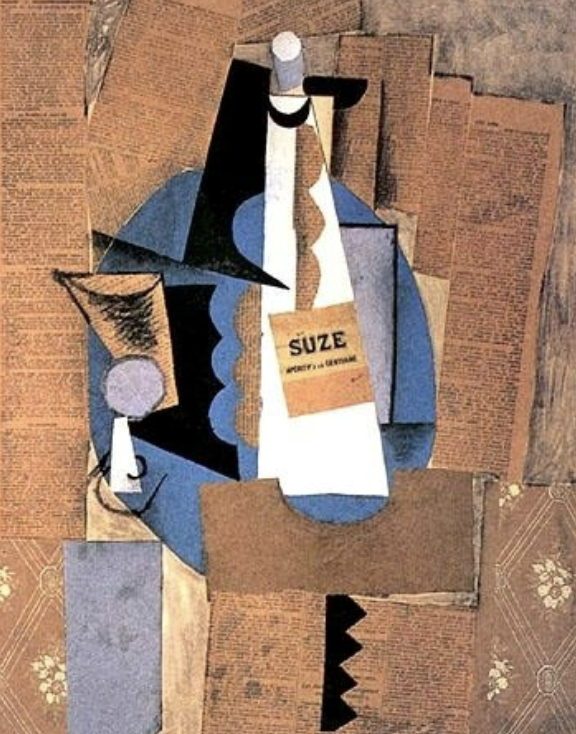
Pablo Picasso, Glass and Bottle of Suze, 1912.
Synthetic Cubism
Dada
Started as a reaction to the horrors of WWI and Nihilism
Began independently in Zurich and NY
French for “hobbyhorse”, but the word itself had no meaning
Believed that reason and logic had been responsible for war
Only hope was anarchy, irrationality, and intuition
Pessimism and disgust of the artists helped them reject tradition-
Arp pioneered the use of chance in artwork, releasing him from the role of artist
For Dadaists, the idea of chance comes from the unconsciousness, influenced by Freud
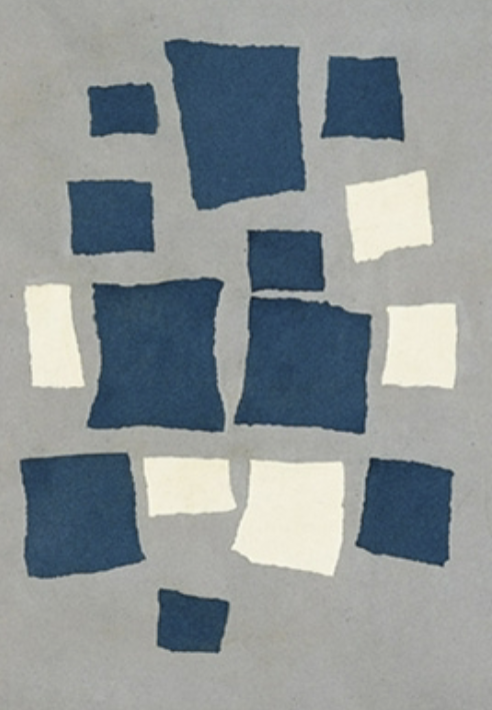
Jean Arp, Collage Arranged According to the Laws of Chance, 1916-17
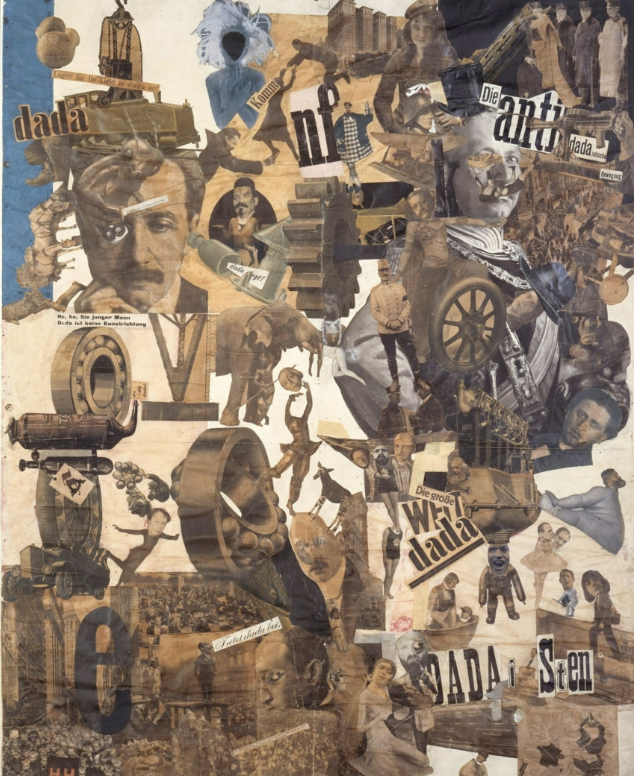
Hannah Höch, Cut with the Kitchen Knife Dada Through the Last Weimar Beer-Belly Cultural Epoch in Germany, 1919–1920, collage, mixed media, (Berlin)
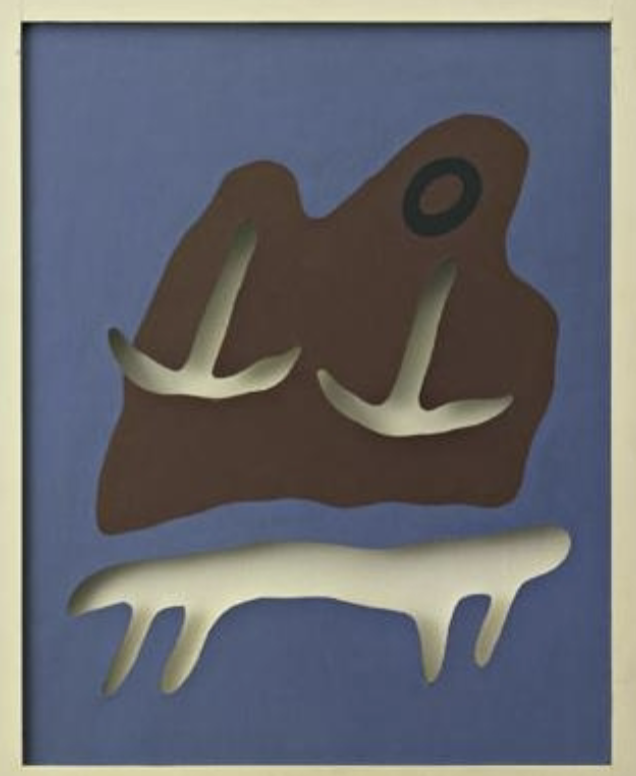
Jean Arp, Mountain, Table, Anchors, Navel. 1925.
Dada
Marcel Duchamp was the central figure
in NY Dada scene
Exhibited his first “ready-made” sculptures - mass-produced common products, selected by the artist.
Free from the opinions of the population- neither good or bad taste.
Forces viewers to see the “artness” of objects
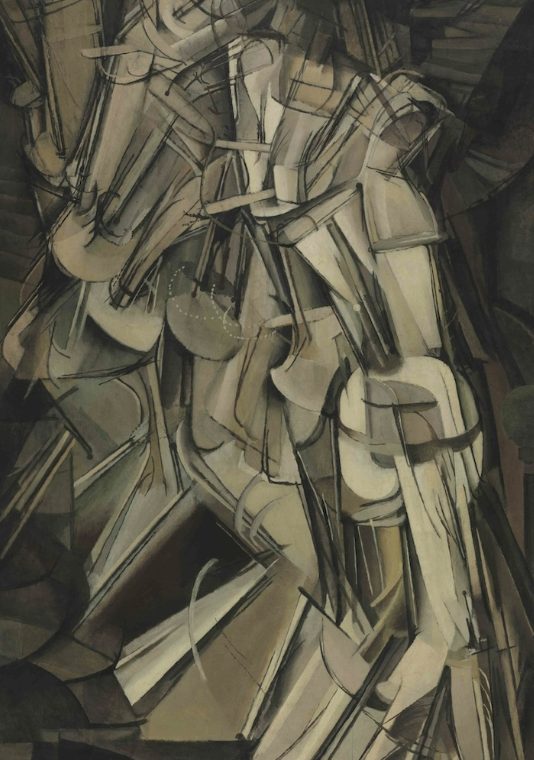
Marcel Duchamp, Nude Descending a Staircase, 1912
Dada
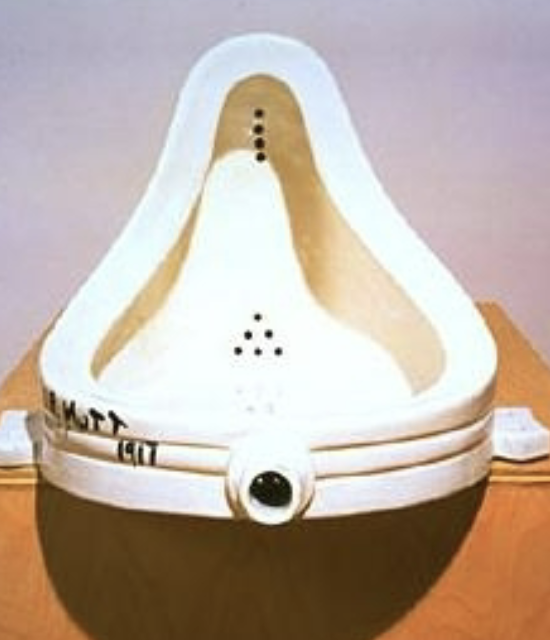
Marcel Duchamp, Fountain, 1913.
Dada
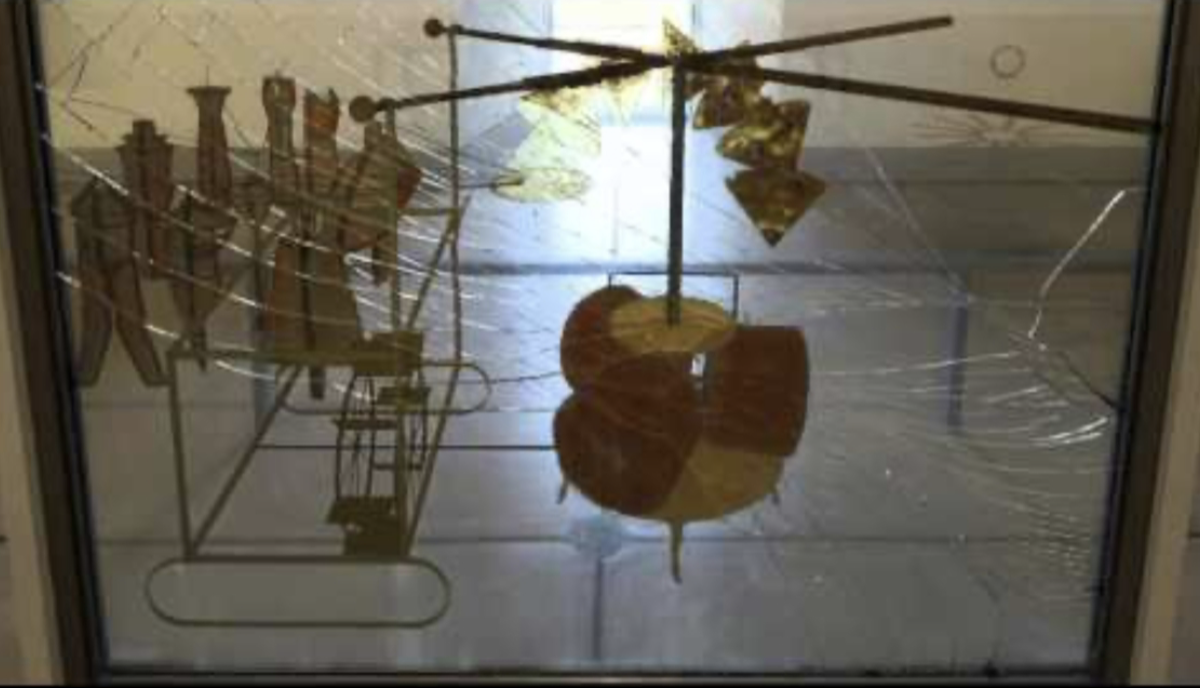
Marcel Duchamp, The Bride Stripped Bare by Her Bachelors, Even (The Large Glass) 1915-23.
Dada